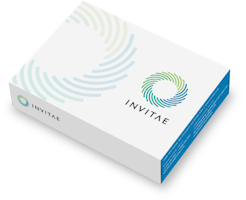
Invitae Lysosomal Acid Lipase Deficiency Test
Test code: 06181 •
Test description
The Invitae Lysosomal Acid Lipase (LAL) Deficiency test analyzes LIPA, the gene that causes the accumulation of triglycerides, cholesterol esters and fats resulting in cholesteryl ester storage disease (CESD), a disorder with highly variable presentation and Wolman disease (WD), a serious infantile form of disease. This test is indicated for any individual in whom LAL deficiency is suspected based on clinical, radiologic, or laboratory findings. Identification of disease-causing variants provide accurate risk assessment and carrier status for at-risk relatives.
Ordering information
Turnaround time:
10–21 calendar days (14 days on average)New York approved:
YesPreferred specimen:
3mL whole blood in a purple-top EDTA tube (K2EDTA or K3EDTA)Alternate specimens:
Saliva, buccal swab, and gDNA are also accepted.Learn more about specimen requirementsRequest a specimen collection kitClinical description and sensitivity
Clinical description:
Clinical features of LAL deficiency include hepatomegaly, elevated serum transaminase, hypercholesterolemia, fatty liver disease, progressive liver fibrosis, and cirrhosis.
WD, an infantile form of LAL deficiency is characterized by acute infantile-onset symptoms including failure to thrive, hepatosplenomegaly, jaundice, diarrhea, vomiting, and anemia caused by hepatic accumulation of cholesterol esters and triglycerides.Adrenal gland calcifications result in adrenal cortical insufficiency. Untreated infants with classic WD do not survive beyond age one year. With recent FDA approval of enzyme replacement therapy for WD, the outlook for affected infants is improving.
CESD may manifest in childhood or later in life. The morbidity of late-onset CESD results from cardiovascular diseases, liver diseases, complications of secondary hypersplenism, and/or malabsorption. Individuals with CESD may have a normal life span depending on the severity of disease manifestations
Assay information
Invitae is a College of American Pathologists (CAP)-accredited and Clinical Laboratory Improvement Amendments (CLIA)-certified clinical diagnostic laboratory performing full-gene sequencing and deletion/duplication analysis using next-generation sequencing technology (NGS).
Our sequence analysis covers clinically important regions of each gene, including coding exons and 10 to 20 base pairs of adjacent intronic sequence on either side of the coding exons in the transcript listed below, depending on the specific gene or test. In addition, the analysis covers select non-coding variants. Any variants that fall outside these regions are not analyzed. Any limitations in the analysis of these genes will be listed on the report. Contact client services with any questions.
Based on validation study results, this assay achieves >99% analytical sensitivity and specificity for single nucleotide variants, insertions and deletions <15bp in length, and exon-level deletions and duplications. Invitae's methods also detect insertions and deletions larger than 15bp but smaller than a full exon but sensitivity for these may be marginally reduced. Invitae’s deletion/duplication analysis determines copy number at a single exon resolution at virtually all targeted exons. However, in rare situations, single-exon copy number events may not be analyzed due to inherent sequence properties or isolated reduction in data quality. Certain types of variants, such as structural rearrangements (e.g. inversions, gene conversion events, translocations, etc.) or variants embedded in sequence with complex architecture (e.g. short tandem repeats or segmental duplications), may not be detected. Additionally, it may not be possible to fully resolve certain details about variants, such as mosaicism, phasing, or mapping ambiguity. Unless explicitly guaranteed, sequence changes in the promoter, non-coding exons, and other non-coding regions are not covered by this assay. Please consult the test definition on our website for details regarding regions or types of variants that are covered or excluded for this test. This report reflects the analysis of an extracted genomic DNA sample. In very rare cases, (circulating hematolymphoid neoplasm, bone marrow transplant, recent blood transfusion) the analyzed DNA may not represent the patient's constitutional genome.
You can customize this test by clicking genes to remove them.
Primary panel
Question about billing?
Find answers